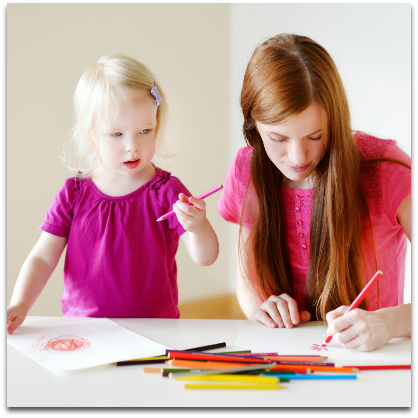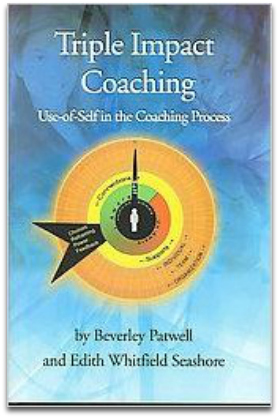 It was the beginning of the school year and my son was learning Algebra. It was not going well.
It was the beginning of the school year and my son was learning Algebra. It was not going well.
“Mom, I’m just no good at this!”
“Sure you are, honey. You just need to try harder.”
“But I’m never going to get it!”
We’ve all been right here. Our child is frustrated with homework and we want to help. Don’t you just wish you could say a magic word and make it better?
What if I told you there actually is a magic word?
Really. There is a magic word that is going to save us from disaster.
A small word.
Tiny.
In fact, it’s only 3 letters.
YET.
An adverb meaning: Up until the present or a specified or implied time.
YET. Such simple word, but oh-so magical. The power and magic of YET lies in the core of its’ meaning: Up until now. My son might not understand Algebra, but he will! He just hasn’t understood it up until now.
How Does Yet Work?
How many times have you heard this?
I’m not good at swimming!
I can’t read a book with this many pages!
I don’t know how to tie my shoes!
These kids are labeling themselves as being bad at something. I do it all the time, too. “I’m not a math person.” Look at how I’m limiting myself! I’m cutting myself off from an entire ability!
And it’s not true! I can do math. I do it all the time. I’m just giving myself permission not to try. I’m protecting myself from the hurt of failure.
Popping YET onto the end changes the whole dynamic of the sentence. It reframes the negative feelings within those statements and transforms it into a more positive self-image. Watch.
I’m not good at swimming…. YET
I can’t read a book with this many pages…. YET
I don’t know how to tie my shoes…. YET
Our kids may not be good at any of these things currently. But by placing YET at the end of the sentence we add a breath of hope into the failure they are feeling.
As I was getting my Masters in organization development, Professor Edie Seashore told me that adding YET was one of the most powerful reframing tools we can use to help change the mindset of our clients. In her book Triple Impact Coaching she said,
“Reframing is about changing the meaning we attach to an experience, person, or context so that we can understand ourselves and how we may be blocking, influencing, or impacting a given situation. Seeing something from a different perspective or angle gives us an opportunity to change the meaning we give it, and may result in more intentional and conscious choices and actions.”
I bet we could all name a situation where YET would have changed the perspective of a really frustrating situation and saved our tempers and sanity.
It’s like when I tell myself, “I’m not a math person, yet,” I change how I feel about math. I feel I have given myself permission to try again. And one day I’ll actually be able to do it with less struggling.
Carol Dweck, in her TED talk “The Power of Yet,” tells about a high school in Chicago who eliminated failing grades on tests. If they didn’t pass they were given the grade “Not Yet.”
“I thought that was fantastic,” she says in her Ted Talk, “because if you get a failing grade you think, ‘I’m nothing. I’m nowhere.’ But if you get the grade ‘Not Yet,’ you understand that you’re on a learning curve. It gives you a path into the future.”
Think of the power that message sends to those kids. It’s not over! You aren’t done! You can succeed at this! YET is magically transporting those kids from the desert of the fixed mindsets into the empire of the growth mindset.
What is a growth mindset? It’s the belief that you have the ability to learn, grow, and succeed. People with a growth mindset don’t see their failures as an end point. They see them as part of the process of succeeding.
To some kids a growth mindset comes naturally. To others, getting beyond a failure is more of a challenge. Which brings me back to our magical little friend YET.
How can we sprinkle YET into our children’s lives?
Noticing When They Are Labeling Themselves Negatively
 We love to use labels. We have a need to categorize and define the world around us that can’t be stopped.
We love to use labels. We have a need to categorize and define the world around us that can’t be stopped.
Tall. Smart. Pretty. Athletic.
In my high school my group was labeled the Drama Geeks. We were smart kids who acted in all the school plays.
But are labels – even positive ones – doing more harm than good? Psychologists think so. They have found that when you label people you think of their personalities in a fixed way. We are Drama Geeks and cannot change to Athletes.
It turns out that mental rigidity can be very stressful. They found that if we start thinking of people’s personalities in a less fixed way we perhaps decrease our overall stress.
Another study found that as students started to believe that personalities and people can change their social stress decreased and they started to do better in school! Those kids who spent less time worrying about how they were being labeled and how they labeled others had more energy to devote to learning.
So what can I do to help my kids start looking at themselves and others as people with developing personalities and not a fixed label?
When you notice your children are labeling themselves negatively – saying things like “I can’t” or “I’m never” or “I don’t” – repeat the negative statement and simply add the word YET to their sentence.
I can’t write such a long essay!
You can’t write such a long essay, YET!
You may get some eye rolling or heavy sighs, but keep the YETs coming! Labels can become a self-fulfilling prophesy, whether they are true or not. Adding YET changes the label from a fixed statement of fact to a statement of growth and possibility.
Having them hear their own words with the word YET at the end re-writes the script in their head. It changes their understanding of who they are.
What I Can’t Do YET
 We all have things that we can’t do YET. For me it’s baking a soufflé. For my youngest it’s riding a bike. But they are all things we will be able to do someday. If we keep trying. There are so many things we’ll be able to do someday it helps to write them all down.
We all have things that we can’t do YET. For me it’s baking a soufflé. For my youngest it’s riding a bike. But they are all things we will be able to do someday. If we keep trying. There are so many things we’ll be able to do someday it helps to write them all down.
Take a blank sheet of paper and write across the top “Things I can’t do YET:” and have you and your child each write down all the things that you can’t do YET. Use colorful pens or markers to make it look festive.
Post the paper somewhere they can see it. On the refrigerator or a cupboard door is ideal. This paper becomes a bucket list of aspirations for you and them.
Having goals and aspirations written out really matters. Arnold Schwarzenegger famously wrote out all of his goals on index cards. And he achieved every one. He isn’t alone. Scientists have found that people who write down their goals are 42% more likely to accomplish them.
If you want your child’s “can’t YET” to become their “can NOW” writing down those things they are struggling with will take them a long way to making it happen.
YET is such a magical tool. Let it start to help you and your child start seeing failure, not as the end of the road, but as a magical bridge to opportunity!
The 2-Minute Action Plan for Fine Parents
Take a minute today to think about how you have labeled and limited yourself. What have you labeled yourself as “not”? Where can you add a YET to start on the bridge to opportunity?
Then take that second minute to think about how your kids are labeling themselves. What are you hearing them say? What are their can’ts and nevers? Where can you add YET into their lives?
The Ongoing Action Plan for Fine Parents
As you continue to notice and add YET in your and your child’s life, help them to explore where they can add YETs themselves. Help them to write down what they haven’t achieved, YET. This is the first step in developing a plan for how to make those YETs into YESES.
Keep going back to those YETs and talk about how far they have come. Then talk with them about what activities or strategies they can try to accomplish their goal.
Add more YETs as they come up. And add your own. Exploring your own YETs gives your child a growth mindset role model and strategies for how to handle setbacks. Soon adding YET will become as natural as breathing.

What a great article! I never thought of it this way. Most of the time when I go to help, I’m thinking “I don’t understand any of this!” But this is encouraging for both kids and parents.
The magical word YET. Thank you.
Thank you so much for your comment. It really is magical.
I love this. Thanks for sharing.
Thank you! I invite you to share it with your friends!
Thank u fir this write up. This has given me a lot of hope. My relations with my teenagers are not very smooth YET. But I m working on it.
Hugs to you and thank you for your compliments. Life with children on the cusp of adulthood is such a challenge. Soon, all this will blossom into a new and deeper relationship. It just isn’t blossoming YET. 🙂
How very insightful! I’ve taught this in parenting classes but never with such wisdom and great description of why and how it works. Thank you for one of the best articles you’ve published. Another way to use the Yet is when a toddler or little one is trying to do something that is beyond them and they throw a temper tantrum out of frustration. Using empathy of “I know you want to _______________. Just not yet. Sometime soon” may help to ease the situation. Maybe not in the middle of the tantrum, but during the comforting. It’s a great word!”
Thank you! I have found “Yet” to work very well with the toddlers in the preschool I manage. Toddlers need simplicity so it’s such a relief to use one word instead of 4 or 5!
I like the idea of the article and it’s not the first time I hear it about encouraging the “growth mindset” in children.
In application, though, I’d appreciate it if there’s a pointer of inserting “yet” keeping in mind that sometimes when children are frustrated, they just wanted to be heard first (aka, perhaps “connect and redirect”?). Case point, just keep inserting “yet” would actually aggravate my son who just wants to be heard and wants to complain without me solving his problem/giving a new idea in his head. In fact, in the moment of his frustration, nothing that I say would be heard. “Stop!! I don’t want to hear you! I will never be good at xyz” then what?
Perhaps you can elaborate a bit on when is the most receptive time for children to this “growth mindset” ideas? Is it really productive to keep inserting “yet” in the heat of the moment when they are frustrated? The “yet” idea is great, I’d like to see a more practical approach in the application that minimize the chance of it backfiring.
Claire
Hi Claire,
It really does help to insert YET in the heat of the moment. It may cause grumbling and explosions, but it is worth it. Saying it right as they are angry helps to glue it onto the end of the sentence in their minds.
I also practice Active Listening (https://afineparent.com/emotional-intelligence/active-listening.html) with my boys to help them feel heard and let them know I am taking their feelings seriously. If your child is a little on the more emotional side of the spectrum you can do Active Listening first and then as you are talking through the situation with them (and they are calmer) add the YET.
Using both of these techniques will get you through almost any situation where they feel stuck and frustrated.
Cheers!
Mindy
Great article! Thanks for writing it!
Thank you!
Thank you for writing about YET.
We need it strongly ..I am going to let my kids write their YETS this evening.
Thank you! Let me know how writing their YETs goes. And don’t be shy about sharing a few of your own with them. It gives kids confidence to know that we have a few YETs lurking, too.
Great and very helpful insight for parenting
Thank you so much!